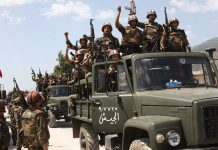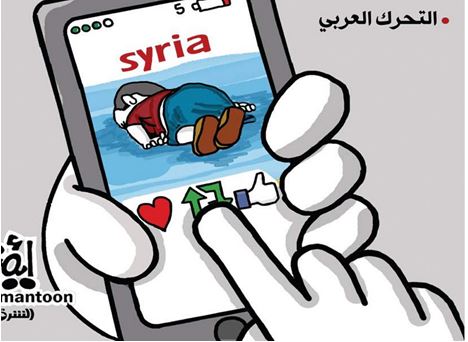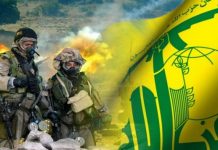A mass murder mystery highlights Turkey’s political fragility
Dr. John C. Hulsman/Al Arabiya/October 13/15
This past weekend’s Ankara suicide bombings, which killed at least 128 people attending a peace rally, is the worst terrorist attack in Turkey’s history. There are suspects aplenty. The rally was organized by the Kurdish Peoples’ Democratic Party (HDP) to demand a halt to the escalating conflict between the increasingly authoritarian Turkish government and the outlawed Kurdistan Worker’s Party (PKK). This renewal of a war that had cost tens of thousands of lives was itself due to the last major terrorist outrage – in Suruc, on the Syrian-Turkish border – where earlier this year a suicide bomber probably inspired by the Islamic State of Iraq and Syria (ISIS) killed 37 pro-Kurdish activists. Turkish President Recep Tayyep Erdogan used the attack as a pretext to crack down on the PKK as part of his ruthless but clever election strategy.
Suspects
ISIS has to be the primary suspect in the Ankara bombings. It is in direct conflict with highly effective Kurdish fighters in both Iraq and Syria. Anything that undermined Kurds’ growing political strength in Turkey – where the HDP surprised observers by winning 13 percent of the last parliamentary vote – would be in ISIS’s interest. So it had the motive, means and opportunity to carry out the attack. With so many plausible suspects in the Ankara bombings, the state is more fragile than it has been in memory. However, there are other suspects. Far-right Turkish nationalist groups such as the shadowy Grey Wolves, or elements of the security services – both outraged at Kurdish electoral successes – also had a motive to instigate the attack. Chaos ahead of parliamentary elections on Nov. 1 could push Turkey to the right, seeing the need for law and order above all else. Such a sea change would ruin the HDP and allow the ruling AK Party (AKP) and other forces on the right to win the contest. This would lead to the emergence of a new strong-arm president, which is what the Turkish right has wanted all along. There is a third possibility. One of the frustrations of assessing the Middle East is dealing with an almost constant barrage of conspiracy theories. My standard line to the region’s observers of my own country, the United States, is that they have been watching too many movies. Politics is more about mistakes made by well-meaning if deeply flawed people, than masterstrokes engendered by highly intelligent Machiavellian forces.
However, in this case there is a conspiracy theory that must be considered: the Turkish government itself. Given the imminence of parliamentary elections, the timing of the attack raises suspicions that pro-Erdogan forces may have been directly involved.
Taking advantage
He is undoubtedly using this tragedy to further his long-term goal of installing himself as an all-powerful president for years to come. That is certainly what the thousands who gathered in Ankara’s main square to mourn their dead comrades think. Chanting “thief and murderer, Erdogan,” the crowd left little doubt as to who they blame. What is certainly true, and far more provable, is the HDP charge that the government, through its control of the police, failed to protect the rally in the same way they would have for an AKP gathering. By not protecting opposition rallies, the police are at least partly to blame through not doing their job.Moving quickly and decisively as he often does, following the bombings Erdogan made clear that he was the only force in the country who could be relied on to combat the looming terrorist threat, despite the fact that he had just failed to do so. He called for three days of public mourning for the victims, but said the Nov. 1 election would go ahead.
With press freedoms curtailed ahead of the poll, in an atmosphere of increasing fear and concern for the stability of the state, Erdogan is trying to entice voters to give the AKP a decisive parliamentary majority this time on his law-and-order, security-first platform. It is a callous strategy, but that does not mean it will not work. With so many plausible suspects in the Ankara bombings, the state is more fragile than it has been in memory, just as the elections clearly amount to a watershed in Turkey’s history. One of the greatpowers of the Middle East hangs on a knife edge.
Understanding the depth of Syrian refugee selfies
Diana Moukalled/Al Arabiya/October 13/15
It should be no surprise why refugees take selfies when arriving in Europe. If I went through an experience similar to theirs, I would document the entire trip using my phone, and if I survived I would post it on social media. Criticism of refugees taking selfies in Europe has mostly come from those angry at the refugee influx. They claim that the joyous photos suggest these people are not suffering, but have come to Europe by choice for purely economic reasons. “Do you think that hundreds of thousands of people would leave their homes and embark on this difficult road just because of a selfie with the Chancellor?” asked German Chancellor Angela Merkel following criticism of her appearing in selfies with refugees. Taking and posting selfies is also a way of reassuring loved ones that they are safe and well. Those who are angry at such selfies ignore the importance of smart phones for refugees, as they contain maps and information about roads and the weather. Taking and posting selfies is also a way of reassuring loved ones that they are safe and well.
Documentation
Smart phones have become a major means of communications in areas where landlines are not available. Refugees are not necessarily very poor, and those fleeing Syria are not as poor as some may think. Smart phones have become a major part of the Syrian struggle. Syrians have used them to record videos of their protests, and attacks against them, since the start of the revolution. No media outlets can produce photos as powerful as those Syrians have taken of their lives inside their country during the past few years. When the regime prevented foreign media outlets from entering Syria, the people took charge of their own fate by taking photos. “We Syrians took photos of every protest and of every massacre,” a Syrian refugee told German media. “We won’t stop taking pictures and sharing them now [that we escaped death]. Migration and asylum are part of our story.”






















